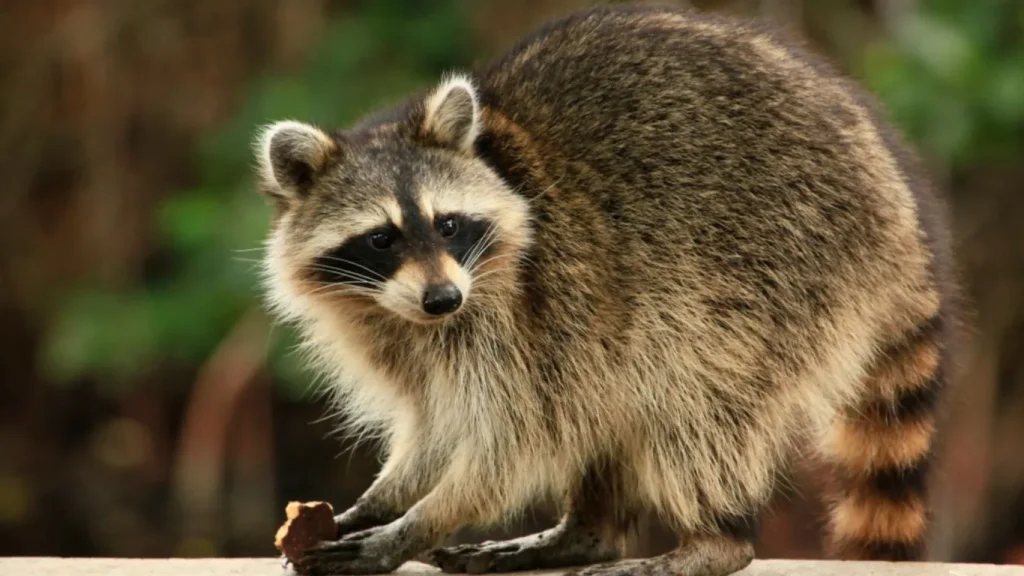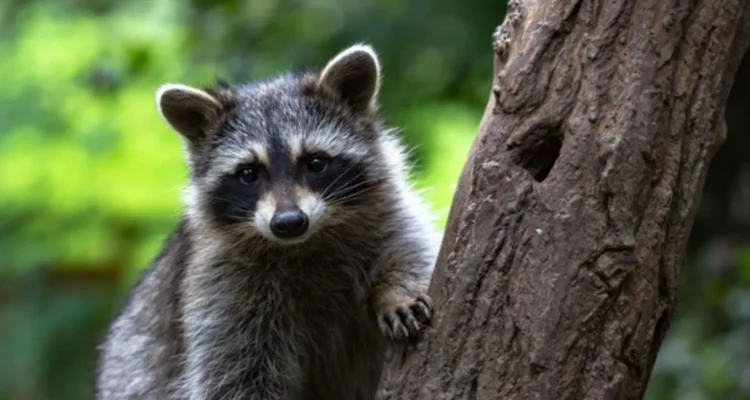What Do Raccoons Hate?
Raccoons might look cute and fuzzy, but they can be quite the nuisance when they invade your yard or home. Understanding what raccoons hate can help you keep these pesky critters at bay. In this comprehensive guide, we’ll explore various methods to deter raccoons, ensuring your property remains raccoon-free.

Understanding Raccoon Behavior
Raccoons are nocturnal animals, meaning they are most active at night. They have a knack for foraging and are known to rummage through trash cans, gardens, and even pet food left outside. These clever creatures are also highly adaptable, making it essential to use a variety of tactics to keep them away.
Why It’s Important to Deter Raccoons
Raccoons can cause significant damage to your property, from tearing up your garden to breaking into your attic. They also pose health risks, as they can carry diseases like rabies. Additionally, raccoons can harm pets and disrupt the peace of your yard.
Scents Raccoons Hate
Ammonia
Raccoons detest the smell of ammonia. You can soak rags in ammonia and place them around your yard or near garbage bins. However, be cautious, as ammonia can be harmful to humans and pets if not used properly.
Vinegar
Vinegar is another scent raccoons dislike. Create a vinegar spray and apply it around areas where raccoons frequent. It’s a safe, natural repellent that won’t harm your plants or pets.
Peppermint Oil
Peppermint oil is a natural raccoon repellent. Its strong scent is overwhelming to raccoons. Dab some peppermint oil on cotton balls and place them in areas prone to raccoon activity.
Sounds That Deter Raccoons
Loud Noises
Raccoons are skittish creatures and can be easily scared away by loud noises. Playing a radio, setting up wind chimes, or banging pots and pans can deter them.
Ultrasonic Devices
Ultrasonic devices emit high-frequency sounds that are unpleasant to raccoons but inaudible to humans. These devices are effective and easy to install in your yard.
Predator Sounds
Playing recordings of predator sounds, such as those of owls or coyotes, can make raccoons feel threatened and encourage them to leave the area.
Visual Deterrents
Bright Lights
Raccoons prefer the cover of darkness. Installing bright lights in your yard can make the area less appealing to them. Motion-activated lights are particularly effective.
Reflective Objects
Reflective objects like aluminum foil, old CDs, or reflective tape can deter raccoons. Hang these items around your yard to create flashes of light that will scare them away.
Scarecrows
Scarecrows are not just for birds. Setting up a scarecrow in your garden can also help keep raccoons at bay. Make sure to move it around periodically to maintain its effectiveness.
Taste and Texture Deterrents
Hot Peppers
Raccoons dislike the taste and sensation of hot peppers. Sprinkle cayenne pepper or use a hot pepper spray on plants and areas where raccoons tend to dig.
Garlic
Garlic has a strong odor that raccoons find repellent. Crush some garlic cloves and spread them around your yard or garden to keep raccoons away.
Cayenne Pepper
Cayenne pepper can be sprinkled around your property or mixed with water to create a spray. Its spiciness is unpleasant to raccoons and can deter them effectively.
Physical Barriers
Fencing
Installing a fence is a physical barrier that can keep raccoons out. Make sure the fence is at least 4 feet tall and extends a foot underground to prevent digging.
Trash Can Lids
Raccoons are notorious for getting into trash cans. Use secure lids or bungee cords to keep them tightly closed and raccoon-proof.
Netting and Mesh
Covering your garden or vulnerable areas with netting or mesh can prevent raccoons from accessing these spots. Ensure the material is strong and tightly secured.
Maintaining a Raccoon-Free Yard
Proper Waste Management
Secure your trash cans and compost bins to avoid attracting raccoons. Regularly clean and disinfect these areas to reduce odors that might lure raccoons.
Removing Food Sources
Remove any potential food sources from your yard, such as pet food, birdseed, and fallen fruit. These can attract raccoons and encourage them to stay.
Regular Yard Maintenance
Keep your yard clean and well-maintained. Trim back bushes and trees that can provide shelter or access to your home.
Natural Predators
Dogs
Dogs can be a great deterrent to raccoons. Their presence and barking can scare raccoons away from your property.
Cats
While not as effective as dogs, cats can also help keep raccoons away, especially if they patrol the yard regularly.
Other Predators
Owls, coyotes, and other natural predators can deter raccoons. Encouraging these predators in your area can help keep the raccoon population in check.
Homemade Repellents
DIY Recipes
You can create your own raccoon repellents using common household ingredients. A mixture of water, dish soap, and hot sauce can be sprayed around your yard to deter raccoons.
Application Methods
Apply homemade repellents generously around areas where raccoons are known to visit. Reapply after rain or as needed to maintain effectiveness.
Commercial Repellents
Types Available
There are many commercial raccoon repellents available, including sprays, granules, and electronic devices. Each has its own benefits and drawbacks.
Effectiveness
Commercial repellents can be very effective, but results may vary. It’s important to follow the instructions carefully for the best results.
Safety Concerns
When using commercial repellents, ensure they are safe for pets and children. Always read the label and use as directed.
Myths About Raccoon Deterrents
Common Misconceptions
There are many myths about what deters raccoons. For example, some believe that mothballs are effective, but they can be toxic and are not recommended.
What Actually Works
Stick to proven methods like those mentioned in this article. Scents, sounds, visual deterrents, and physical barriers are all effective ways to keep raccoons away.
FAQs
How often should I apply repellents?
Repellents should be applied as often as needed, especially after rain or when their effectiveness seems to diminish.
Are there any scents that attract raccoons?
Yes, raccoons are attracted to the smell of food, garbage, and even pet food left outside.
Can raccoons become aggressive?
While generally not aggressive, raccoons can become defensive if they feel threatened or cornered.
What should I do if I encounter a raccoon during the day?
Raccoons are nocturnal, so seeing one during the day might indicate illness or disorientation. It’s best to avoid contact and call animal control.
Is it safe to use chemical repellents around pets?
Always read the label and ensure that any chemical repellents you use are safe for pets and children. Opt for natural alternatives when possible.
Conclusion
Keeping raccoons out of your yard and home requires a combination of methods. By understanding what raccoons hate and using a variety of deterrents, you can effectively keep these pesky creatures at bay. Remember to regularly update and change your tactics to prevent raccoons from becoming accustomed to your efforts.


Congratulation!